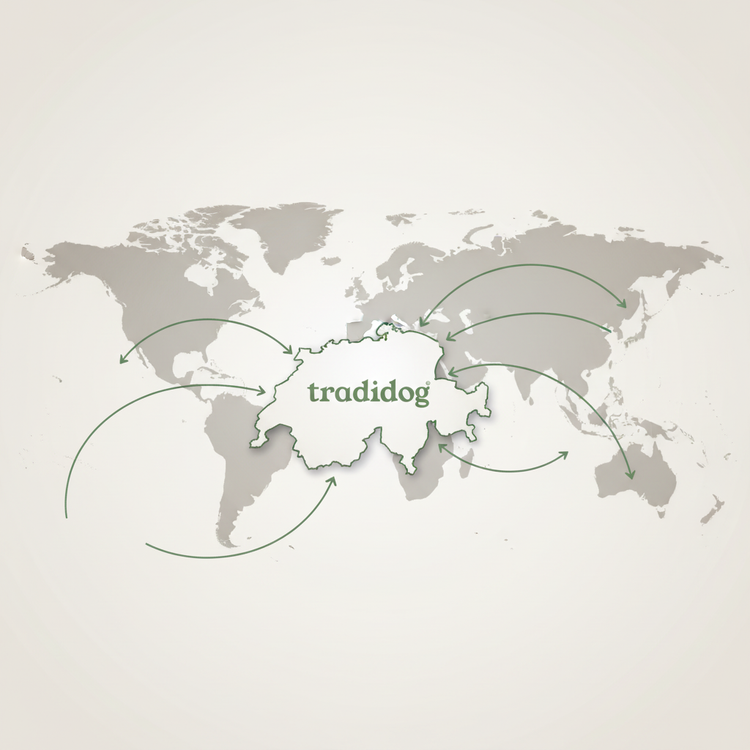
Ideal dog nutrition: tips for optimal care
Nutrition plays a crucial role in your dog's health and well-being. But with so many different foods and nutritional approaches available, it can be difficult to make the right choice. In this blog post, we'll give you tips on the ideal dog diet for different types of dogs so you can provide your loyal companion with the best possible care.
1. Puppies
The nutritional needs of puppies are different from those of adult dogs because they are growing and require a balanced diet to develop healthily.
-
High-quality puppy food : Choose a high-quality puppy food that is specifically formulated for the needs of puppies. Make sure it contains adequate protein levels as well as key nutrients such as calcium and phosphorus, which are important for bone growth.
-
Frequent feeding : Puppies have fast metabolisms, so they require several small meals per day. Plan to feed your puppy about three to four times a day to ensure he gets adequate nutrients.
2. Active dogs
If your dog is particularly active and burns a lot of energy, he needs a diet that meets his increased energy needs.
-
High-protein food : Choose a food with a higher protein content to support muscle building and recovery after physical activity. Breeds such as the Border Collie, Australian Shepherd and Siberian Husky are known for their activity and therefore require a high-protein diet.
-
Healthy fats : Add healthy fats like salmon oil or coconut oil to increase energy and support joint health. These fats not only provide energy but also promote a shiny coat and healthy skin.
3. Seniors
Older dogs often have special nutritional needs because their metabolism slows down and they may suffer from age-related health problems.
-
Easily digestible foods : Choose easily digestible foods that will aid your senior dog's digestion and help him absorb nutrients optimally. Gently processed proteins and fiber from sources such as chicken, rice and vegetables can be a good option.
-
Joint support : Older dogs can suffer from joint problems such as arthritis. Look for foods that contain glucosamine and chondroitin to support joint health and improve mobility and quality of life.
4. Allergies and sensitivities
Some dogs suffer from allergies or sensitivities to certain foods. If your dog is prone to allergies, it's important to choose a diet that takes into account his specific needs.
-
Hypoallergenic Options : Look for hypoallergenic foods that are free of common allergens like wheat, soy, and artificial colors and preservatives. Breeds like the Maltese, Shih Tzu, and Irish Wolfhound tend to be more prone to allergies and could benefit from a hypoallergenic diet.
-
Elimination diet : If your dog has severe allergies or sensitivities, an elimination diet can be helpful in identifying what triggers his reactions. A veterinarian can help you create a plan to identify and eliminate potential allergens.
Conclusion
The ideal dog diet depends on several factors, including your dog's age, activity level, health and individual needs. By carefully considering your dog's nutritional needs and choosing high-quality foods tailored to his needs, you can ensure that your loyal companion receives optimal nutrition that promotes his health and quality of life. If you are unsure about which food is best for your dog, you can always ask a veterinarian or pet nutritionist for advice.
Share

